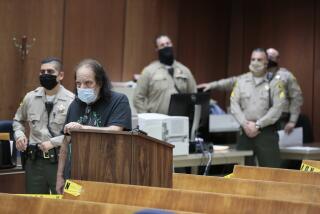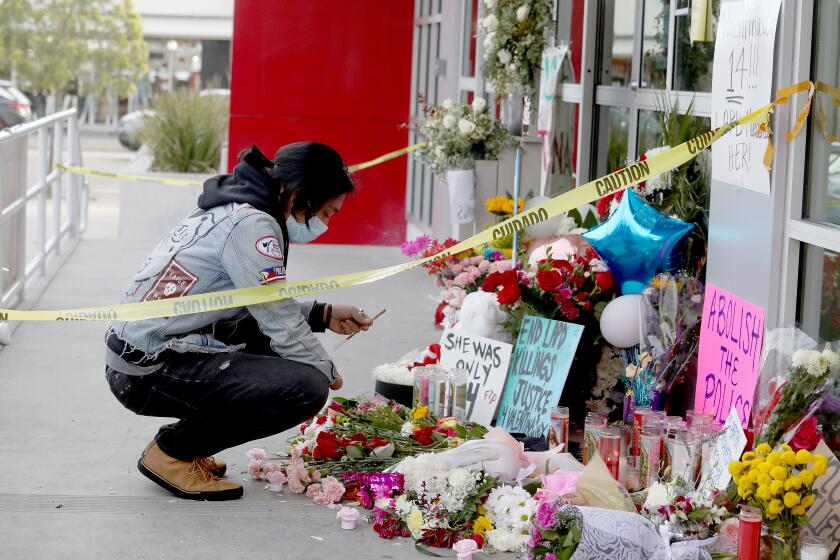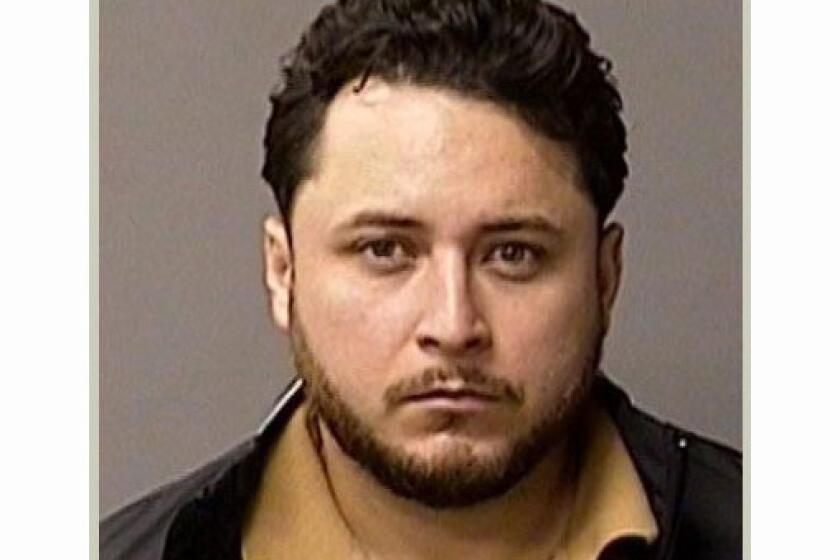Roman Polanski loses bid for dismissal of sexual assault conviction

Oscar-winning film director Roman Polanski has lost his latest bid to dismiss a 1977 sexual assault conviction that spurred him to flee to Europe to avoid sentencing.
Last week, Polanski’s legal team — which included prominent civil liberties attorney Alan M. Dershowitz — made accusations of prosecutorial and judicial misconduct in its effort to end the case.
The filmmaker’s guilty plea to one count of unlawful sexual intercourse with a minor has kept him out of the United States as well as many countries that have extradition treaties with the U.S.
Polanski, now 81, was aiming to finally wrap up the legal drama that has kept him an exile since 1978.
Defense attorneys had sought an evidentiary hearing to explore the misconduct allegations and whether an extradition request sent in October by the U.S. Department of Justice to the Polish government contained false information. If granted, the hearing might have led to a dismissal of the case.
But Los Angeles County Superior Court Judge James R. Brandlin threw out the request Tuesday, stating that Polanski cited no statute, regulation or rule that grants him the right to an evidentiary hearing. He added that the court was not aware of any such authority.
The judge also ruled that because Polanski has refused to comply with trial court orders, he has no legal right to relief while still a fugitive.
“Polanski,” Brandlin wrote, “is not entitled to avail himself of this court’s power to hear his demands while he openly stands in an attitude of contempt of a legal order from this very court.”
Alternatively, the judge stated that the filmmaker could pursue other remedies, such as cooperating with the extradition process and returning to California — a move that would give him the opportunity to obtain an evidentiary hearing.
Dershowitz said his legal team intended to pursue all legal remedies in the trial and appeals courts “because Mr. Polanski’s liberty interests and the integrity of the justice system are at stake.”
Former federal prosecutor Laurie Levenson, a Loyola Law School professor, said she was not surprised by the decision.
“After attacking all the judges of that court, it’s not particularly surprising that the judges were not willing to go out on a limb and grant this extraordinary request,” Levenson said. “There’s not a lot of new law in support of the motion. The legal arguments they made are the same legal arguments we’ve heard before.”
Polanski’s legal team is all but certain to appeal, Levenson said. “I think he thinks he might find a more sympathetic judge or two on the appellate court.” She called the move “a long shot,” however, and predicted that the case would linger in perpetual stalemate.
“This case is never going away,” she said. “There’s no reason for him not to keep trying, as long as he doesn’t have to come back. And if he doesn’t come back, I don’t think the court will resolve his issues. It will be a stalemate, and it’s likely to be a stalemate for all time.”
Polanski’s motion filed earlier this month in L.A. County Superior Court centered on an attempt in October to arrest Polanski while he was attending the Museum of the History of the Polish Jews in Warsaw.
Polanski’s attorneys said the extradition request omitted that he served court-ordered prison time because prosecutors were trying to align the case history to meet the criteria of an extradition treaty between the United States and Poland.
The prison time has proved controversial because the order purportedly took place in 1977 in an off-the-record meeting between the prosecutor and the defense attorney. At the time, Judge Laurence J. Rittenband ordered Polanski to undergo a psychiatric study at the state prison in Chino. The prosecutor and Polanski’s attorney understood that this time in the prison would serve as Polanski’s punishment, Monday’s filing said.
Polanski reported to Chino and was released after 42 days.
But Rittenband then told the attorneys in private that he wanted Polanski to finish the 90 days — and then leave the country. If he didn’t leave, he’d get even more prison time.
His attorney alleged misconduct by the judge. He argued that Rittenband improperly used the psychiatric study to incarcerate Polanski, that he had no authority to compel his deportation and that he was letting media coverage and public outcry influence his decisions.
The murky sentencing, among other factors, prompted the Swiss government in 2009 to refuse to extradite the director when he visited the country to accept a lifetime achievement award at a film festival.
That same year, Polanski was rebuffed in his first bid to dismiss the case based on allegations of judicial and prosecutorial misconduct. The court denied the request, saying Polanski was required to be present at any hearing related to the case and was not entitled to any relief while he was at large.
The state’s 2nd District Court of Appeal later upheld the decision but urged the parties and the trial court to investigate and respond to Polanski’s claims.
Steve Cooley, who was the Los Angeles County district attorney when Polanski sought the first dismissal, said that, ultimately, Rolanski has to surrender to the court. “Until then,” he said, “it’s a dead letter.”
Officials of the D.A.’s office declined to comment on Brandlin’s decision.
Twitter: @LADeadline16
Twitter: @LATsciguy
Times staff writers Lauren Raab and Matt Hamilton contributed to this report.
More to Read
Start your day right
Sign up for Essential California for news, features and recommendations from the L.A. Times and beyond in your inbox six days a week.
You may occasionally receive promotional content from the Los Angeles Times.







